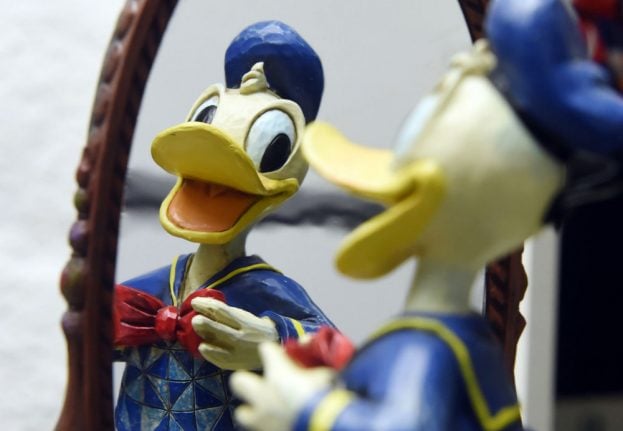Imagine a cartoon strip which shows Merkel as a heroin addict, Obama as a soldier and Berlusconi as a crack smoker.
They’re only three of the ‘victims’ of Amaral’s latest video, ‘Ratonera’, which ties in lyrics critical of Spain’s political elite with satirical drawings of them as society’s outcasts.
The folk rock pair from Zaragoza have moved away from their usual love ballads and centred their latest work on the general discontent of Spaniards vis-à-vis those in charge.
“I don’t even know how you sleep at night, you stupid phoney” or “Beatings, threats and broken promises, king of thieves” are just two of the condemning lines from their newest song.
“Alberto González Vázquez (illustrator) suggested that the video should portray, with humour and satire, how the ruling class are victims of a whole series of problems which in reality don’t affect them in the slightest,” Amaral explained on their website.
The end product depicts many renowned faces of Spanish politics black and bruised, homeless or as job-seeking migrants.
Amaral, also the surname of their singer Eva María, performed in front of the US Embassy in Madrid on Sunday as part of a demo to raise awareness for the shelved murder case of Spanish journalist José Couso.
He was one of three journalists killed on April 8th 2003 by American troops in Baghdad during the US invasion of the city.
Participants at Sunday’s protest are demanding the culprits be brought to justice despite an ongoing debate over whether Spain should shelve international human right cases.
Don't miss stories about Spain, join us on Facebook and Twitter.




 Please whitelist us to continue reading.
Please whitelist us to continue reading.
Member comments